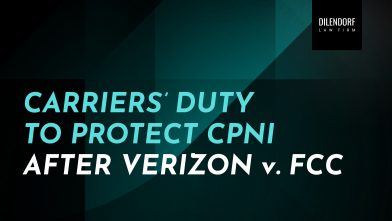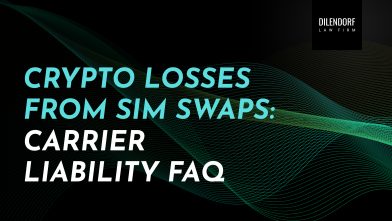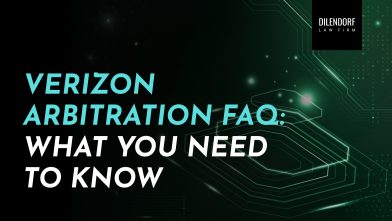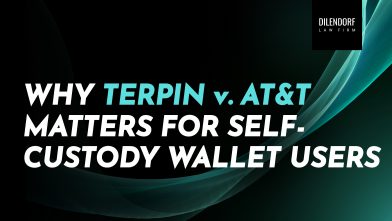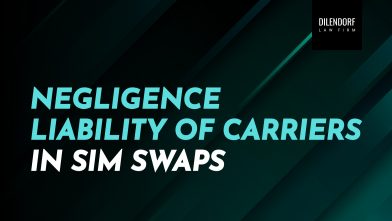Arbitration Against T-Mobile: FAQ Guide
If your T-Mobile account was compromised—especially due to a SIM-swap attack or unauthorized access—you may be entitled to compensation. Under T-Mobile’s Terms & Conditions (“Terms and Conditions” or “T&Cs”), most disputes must be resolved through individual binding arbitration rather than through court litigation.
This guide explains how to follow the required steps, including sending a Notice of Dispute, serving T-Mobile’s registered agent, and filing your arbitration demand with the American Arbitration Association (AAA).
1) My T-Mobile account was compromised. Can I take T-Mobile to court?
Typically, no. Under T-Mobile’s Terms and Conditions, most disputes must be resolved through individual binding arbitration rather than in court.
T-Mobile states:
“YOU AND WE EACH AGREE THAT, EXCEPT AS PROVIDED BELOW, ALL CLAIMS AND DISPUTES BETWEEN YOU AND T-MOBILE WILL BE RESOLVED BY INDIVIDUAL BINDING ARBITRATION OR IN SMALL CLAIMS COURT.”
This means customers generally cannot file a lawsuit in court, unless a narrow exception applies (e.g., timely opt-out or qualifying small-claims matter).
2) I lost money after a SIM-swap. Can I make T-Mobile pay for my losses?
Potentially, yes. SIM-swap attacks often lead to financial harm, including theft of cryptocurrency or access to financial accounts. These losses may support claims relating to T-Mobile’s privacy or security practices.
The Terms and Conditions expressly cover:
“CLAIMS AND DISPUTES IN ANY WAY RELATED TO OR CONCERNING […] PRIVACY OR DATA SECURITY PRACTICES […] SERVICES, DEVICES, OR PRODUCTS […]”
An arbitrator may award monetary damages and other relief.
3) Does T-Mobile force customers into arbitration?
T-Mobile requires arbitration for nearly all disputes unless the customer properly opted out within 30 days.
“YOU MAY CHOOSE TO PURSUE YOUR CLAIM IN COURT […] IF YOU OPT OUT OF THESE ARBITRATION PROCEDURES WITHIN 30 DAYS […]”
If no timely opt-out was submitted, arbitration applies. Customers may still proceed in small-claims court if eligible.
4) What do I need to do before I can file an arbitration claim?
You must give T-Mobile a chance to resolve the problem informally by sending a Notice of Dispute.
Per the Terms and Conditions:
“For all disputes or claims you have, you must first give us an opportunity to resolve your claim by sending a written description of your claim (‘Notice of Dispute’).”
You must then wait up to 60 days for T-Mobile to respond.
5) What exactly should I say in the Notice of Dispute?
The Notice must include specific details:
“(a) the name of the T-Mobile account holder; (b) billing account number; (c) the mobile telephone number at issue; (d) a written description of the problem, relevant documents and supporting information; and (e) a good faith calculation of the damages […] and […] the specific relief you are seeking.”
If you are represented by counsel, include written authorization allowing T-Mobile to communicate with your attorney. Our firm assists clients by drafting and submitting Notices of Dispute.
6) Where do I send the Notice of Dispute?
T-Mobile directs customers to mail their Notice to:
T-Mobile Customer Relations
P.O. Box 37380
Albuquerque, NM 87176-7380
Per the Terms and Conditions:
“Mail notices are considered delivered 3 days after mailing.”
We recommend certified or trackable mail.
7) What happens after T-Mobile receives my Notice of Dispute?
You and T-Mobile have 60 days to try to resolve the issue.
The Terms and Conditions explain:
“[…] neither of us may commence any arbitration […] unless you and we are unable to resolve the claim(s) within 60 days after receipt of the Notice of Dispute […]”
T-Mobile may request additional information or discuss settlement. If no resolution is reached, you may proceed to arbitration.
8) How long do I have to wait before filing arbitration?
You must wait 60 days after T-Mobile receives your Notice of Dispute. If the claim remains unresolved after 60 days, arbitration may be initiated.
9) How do I officially start the arbitration process?
Arbitration begins when you both:
- Send a letter requesting arbitration to T-Mobile’s registered agent, and
- File with the American Arbitration Association (AAA)
The Terms and Conditions provide:
“To begin arbitration, you must send a letter requesting arbitration and describing your claim to our registered agent […] and to the American Arbitration Association (‘AAA’).”
T-Mobile identifies its registered agent as:
“Corporation Service Company […] 1-833-441-2890.”
Our firm handles this process for clients.
10) Who actually runs the arbitration?
The arbitration is administered by the American Arbitration Association (AAA) under its Consumer Arbitration Rules.
“The arbitration of all disputes will be administered by the AAA under its Consumer Arbitration Rules […]”
AAA oversees arbitrator appointment and case management.
11) Where will my arbitration hearing take place?
Under the Terms and Conditions:
“Arbitration or court proceedings must be in the county and state or jurisdiction in which your billing address […] is located […]”
Remote hearings may be available.
12) Who picks the arbitrator — me or T-Mobile?
Both parties participate in selection. The AAA provides a list of candidates, and each side can strike and rank individuals.
The Terms and Conditions specify:
“The AAA will send the parties a list of five candidates;[…] each party shall […] strike up to two candidates, and rank the remaining candidates […] [and] the AAA shall appoint as arbitrator the candidate with the highest aggregate ranking.”
13) How much does arbitration cost?
To begin an arbitration against T-Mobile, the consumer filing fee with the American Arbitration Association (AAA) is $225 under the AAA Consumer Arbitration Rules.
14) Can I get my attorneys’ fees paid if I win?
Yes. The arbitrator may award:
“[…] any relief that would be available in a court, including injunctive or declaratory relief and attorneys’ fees.”
15) Can I handle the arbitration myself without a lawyer?
It is legally allowed, but not recommended. Arbitration is a formal legal process involving written submissions, document exchange, expert evidence, and a hearing.
Dilendorf Law Firm routinely represents individuals in SIM-swap and digital-asset arbitration matters and can manage the full process on your behalf.
Contact Us
When a T-Mobile SIM-swap results in unauthorized access and the loss of cryptocurrency, taking timely and strategic action is critical. Our firm represents clients in arbitration and develops comprehensive, evidence-based claims to help pursue recovery.
With over six years of experience and a record of handling more than 100 consumer arbitration cases, our firm has pursued claims against major cryptocurrency exchanges as well as leading phone carriers such as Verizon, T-Mobile, and AT&T.
Our attorneys are experienced in navigating proceedings before AAA, JAMS, and NAM, and understand the procedural and strategic nuances that can make or break a case. We also represent victims whose assets were stolen not only from regulated exchanges but also from self-custody wallets like MetaMask and other decentralized platforms.
Reach out to us today to discuss your case and legal options: (212) 457 9797 | info@dilendorf.com.
Attorney Advertising. Prior results do not guarantee a similar outcome. This information is provided for educational purposes and is not legal advice.



